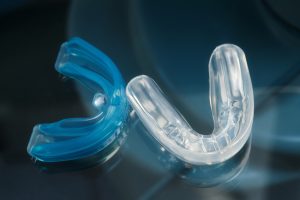
You already know that seeing a dentist in Allentown can help to correct aching or misaligned teeth. But dental professionals can also assist with other conditions, including private and potentially embarrassing issues such as drooling. In this post, we’ll consider possible causes of this condition and suggest ways that a dentist may be able to help you find relief.
What Causes Drooling?
Saliva plays an important role in your body’s daily functions. It contains anti-germ compounds that control the amount of bacteria in your mouth. It lubricates food and helps it to pass easily your stomach. Saliva also helps your digestive system to break food down into basic nutrients.
Saliva is so necessary that your mouth contains six separate glands responsible for its production. Drinking plenty of water is important for adequate saliva production. So is avoiding tobacco and limiting your consumption of alcohol and salty foods.
Your teeth, lips, and tongue help to keep saliva where it belongs. Sometimes, however, certain conditions can cause this system to experience problems. A few of the more common causes of drooling include:
- Muscle control challenges stemming from injuries or neurological problems.
- Pregnancy, which may cause your body’s saliva production to go into overdrive.
- Tumors or cancer of the tongue. Skin cancer may also play a role.
- Certain medications that can interfere with your nervous system.
- Sleep-related issues, such as snoring or sleep apnea.
- Acid reflux leading to excess saliva production.
Whatever the cause of drooling, it’s important to realize that this condition is no cause for shame. Seeking the help of your local dentist can often alleviate the underlying issue or even cure it altogether. Possible treatment options include:
- Mouth guards or similar health appliances.
- Changes in medication doses or types. This is especially helpful for people who take pharmaceuticals to help manage neurological disorders.
- Treatment for breathing or sinus conditions. Options range from over-the-counter products to nighttime airway pressure therapy (CPAP).
- Adopting different sleep styles or positions. You may receive a referral to a sleep hygiene clinic for an overnight study.
- Botox injections. Botox therapy does more than remove wrinkles. It can also resolve problems caused by poor facial muscle control.
- Speech therapy. Often, a speech therapist can help you to minimize drooling and improve your verbal communication at the same time.
- Surgery. Many times, a surgical procedure can correct the underlying causes of drooling.
Making an appointment with a family dentist in Allentown is an important first step in addressing your concerns. The doctor will perform a thorough checkup of your mouth and jaw, ask about your medical history, and outline your therapeutic options. If he or she is unable to treat the condition, then you’ll receive a referral to a qualified specialist for further assistance.
In some cases, drooling is a symptom of a serious condition, one that requires prompt diagnosis. So don’t let fear or embarrassment keep you from living a better life. Make an appointment with a dentist or other healthcare professional today. We wish you all the best as you take charge of your life and your well-being.

